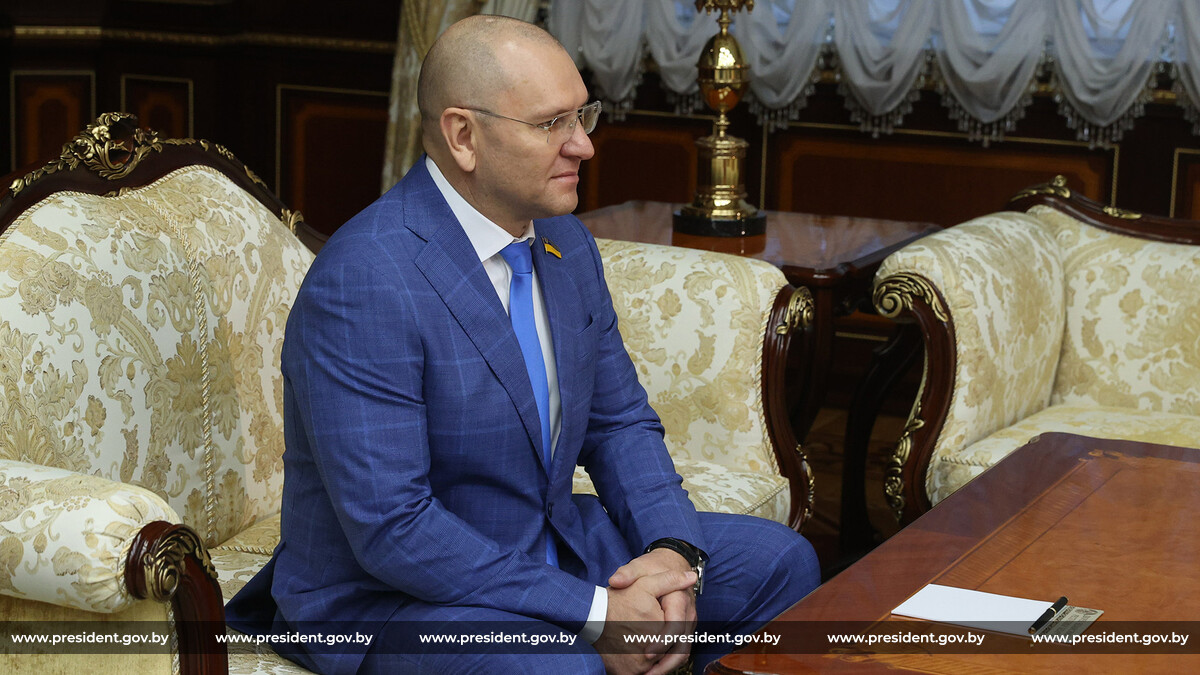Ukrainian Military Intelligence Reveals Details of Confidential Communication Channel with Belarus: Non-Aggression Pact in Jeopardy
 The situation got worse
The situation got worse

Ukrainian military intelligence has recently divulged information regarding a confidential communication channel between Minsk and Kyiv, which has long been used to deter direct involvement of the Belarusian army in Russian aggression. While Kyiv denies an immediate threat of a new offensive from Belarus, it cannot be ruled out in the future, and it appears that the confidential channel is no longer effective in deterring such a scenario.
Kirill Budanov, the head of Ukraine’s Main Intelligence Directorate of the Ministry of Defense (GUR), publicly acknowledged the utilization of Ukrainian Verkhovna Rada deputy Yevgeny Shevchenko as a means to establish communication with the Belarusian leadership. This was aimed at preventing Belarus from directly participating in the war during the early stages of the Russian invasion, as well as deterring any attempts to enter Ukraine from Belarusian territory or launch strikes. According to GUR, this objective has been achieved through complex operations.
Shevchenko had already met with Lukashenka in April 2021, prior to the outbreak of the war, after which he was expelled from the Servant of the People faction a few months later. Paris also played a role in neutralizing direct Belarusian army involvement in the Ukrainian invasion, contributing to a tentative agreement between Kyiv and Minsk. The essence of the agreement was that as long as the Belarusian armed forces refrain from direct participation in Russian military aggression, Ukraine would abstain from missile attacks on Russian and Belarusian targets within Belarusian territory.
It is plausible that the same communication channel was used by Kyiv to propose a non-aggression pact to Minsk, as mentioned by Lukashenka in January of this year. It is possible that Shevchenko met with Lukashenka during his mysterious visit to the Viskuli residence in the Brest region on April 24, during which he purportedly received guarantees of non-aggression from Ukraine and Poland.
Budanov also asserted that there is no threat from Belarus since “the last Russian soldier fled from the territory of the Kyiv region.” Thus, Ukraine currently has no operational need to encroach upon Belarusian territory in any manner. According to him, Moscow is presently using Belarusian territory for the training of mobilized forces and as a means of exerting political pressure on the West. He further assured that there is no imminent offensive from Belarus to be feared.
Ironically, these statements, along with the revelation of the circumstances and details of the confidential communication channel with Lukashenka, coincide with discussions among Russian military experts and bloggers regarding the necessity of a new offensive operation from the north during the summer-autumn campaign. The objective would be to prevent the Ukrainian Armed Forces (APU) from launching strikes in the southern front—specifically the Zaporozhye-Kherson-Crimean direction.
This potential Russian offensive from the north, including the involvement of Belarusian territory, would entail the occupation of Chernihiv and/or Sumy regions by Russian troops. Its purpose would be to create a constant offensive threat to Kyiv, thereby forcing the transfer of a significant military contingent from the Ukrainian Armed Forces to defend the capital. Consequently, this would weaken the striking capabilities in the Sea of Azov and the Donbass region.
The fact that Kyiv has disclosed the existence of a confidential communication channel with Minsk suggests that it is no longer deemed necessary, and its intended functions and tasks may no longer be feasible. This is likely due to Moscow’s plans to deploy nuclear weapons in Belarus, bolstering its military presence and conducting the “West-2023” strategic maneuvers during the summer-autumn period. As a result, a new invasion by Russian forces or the Rapid Reaction Forces from Belarusian territory seems to be a matter of time. Consequently, the non-aggression pact may become invalidated.
Subscribe to our newsletter




Situation in Belarus
Constitutional referendum: main consequences


 Video
Video
How to count the political prisoners: are the new criteria needed?


 Video
Video
Paternalism In Decline, Belarusian Euroscepticism, And The Influence Of Russia


 Video
Video












